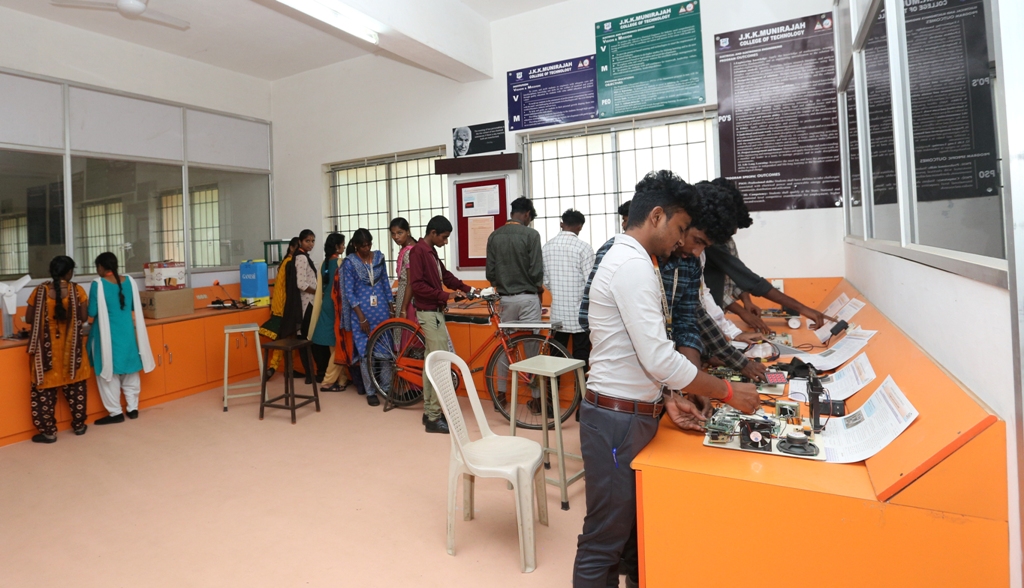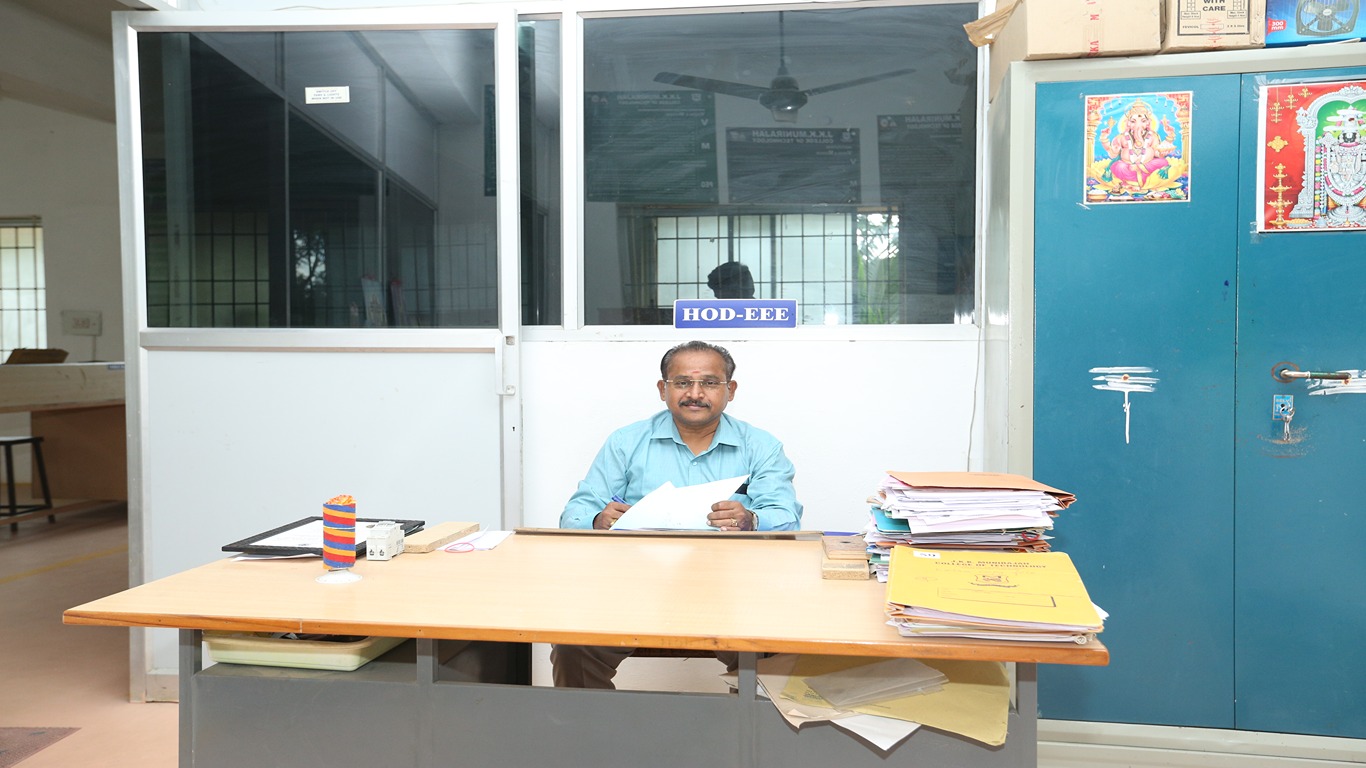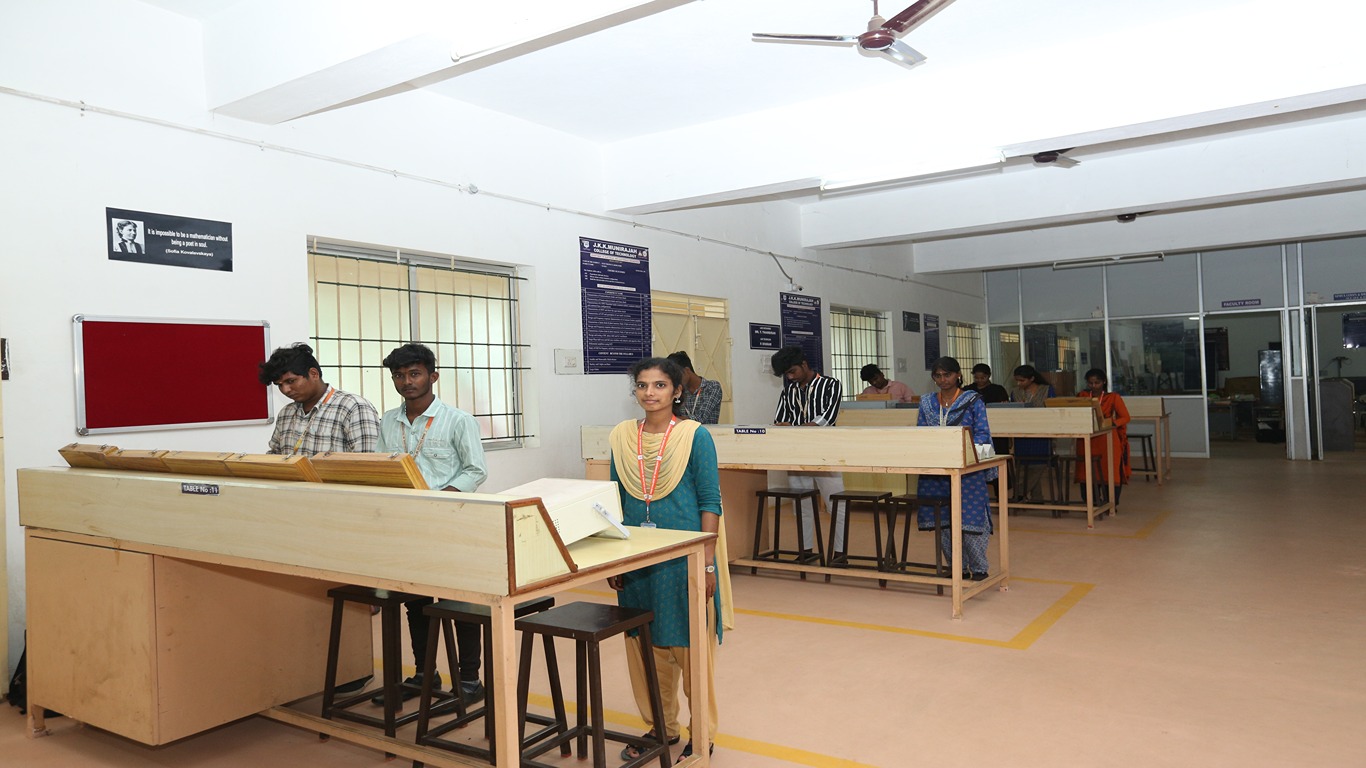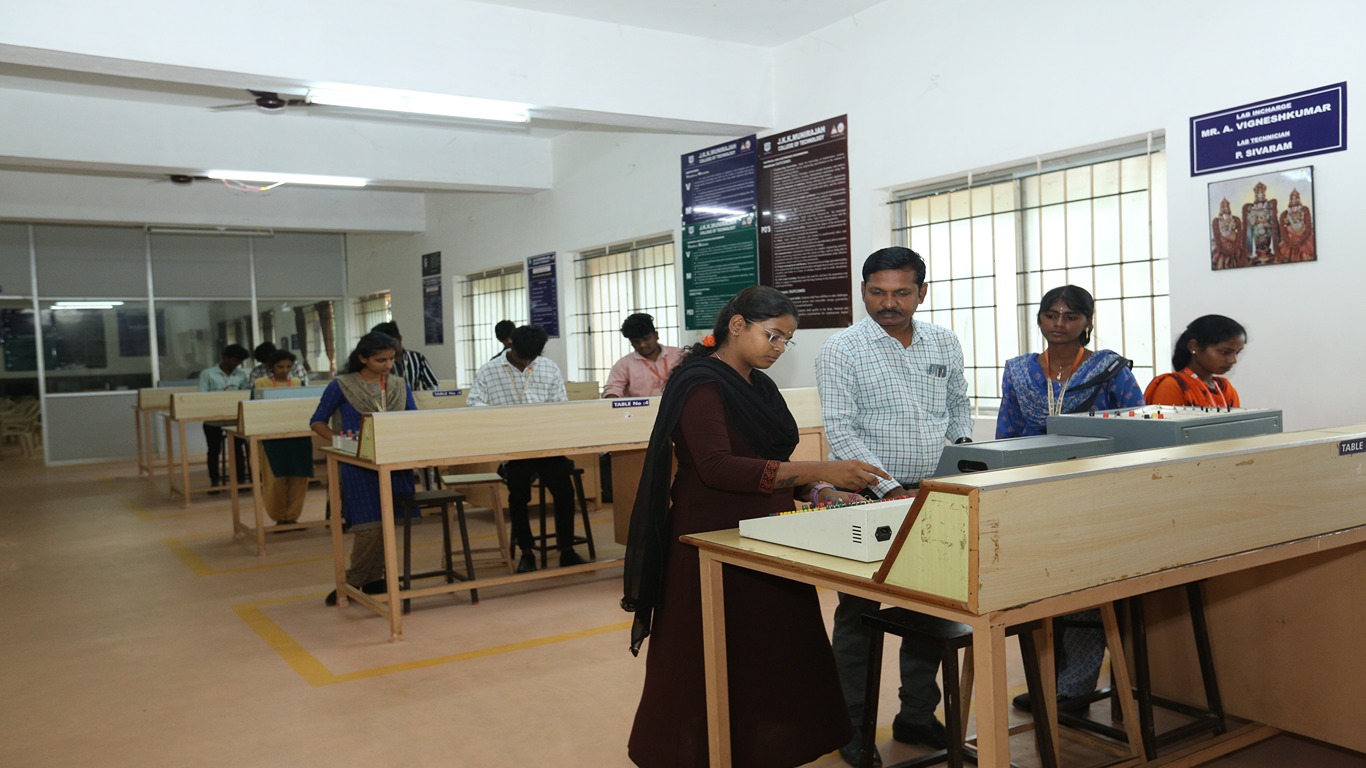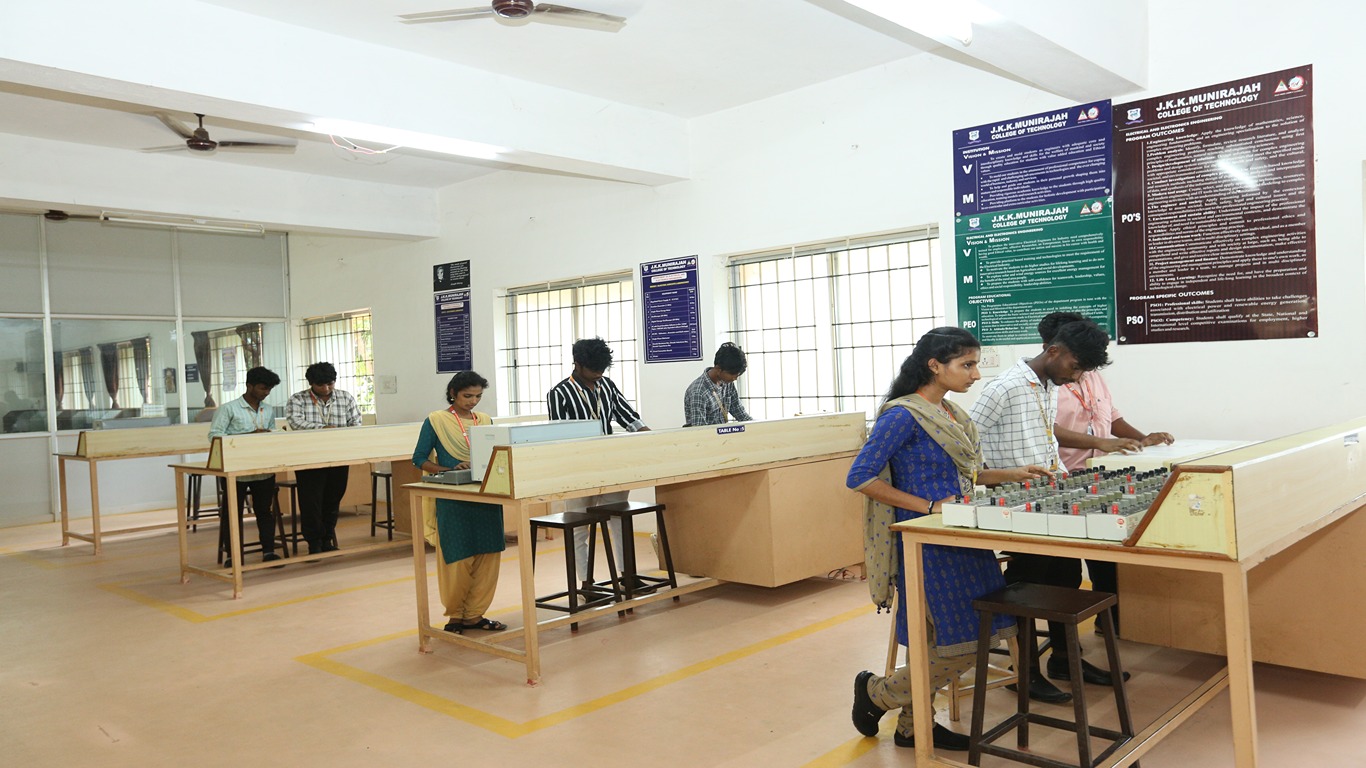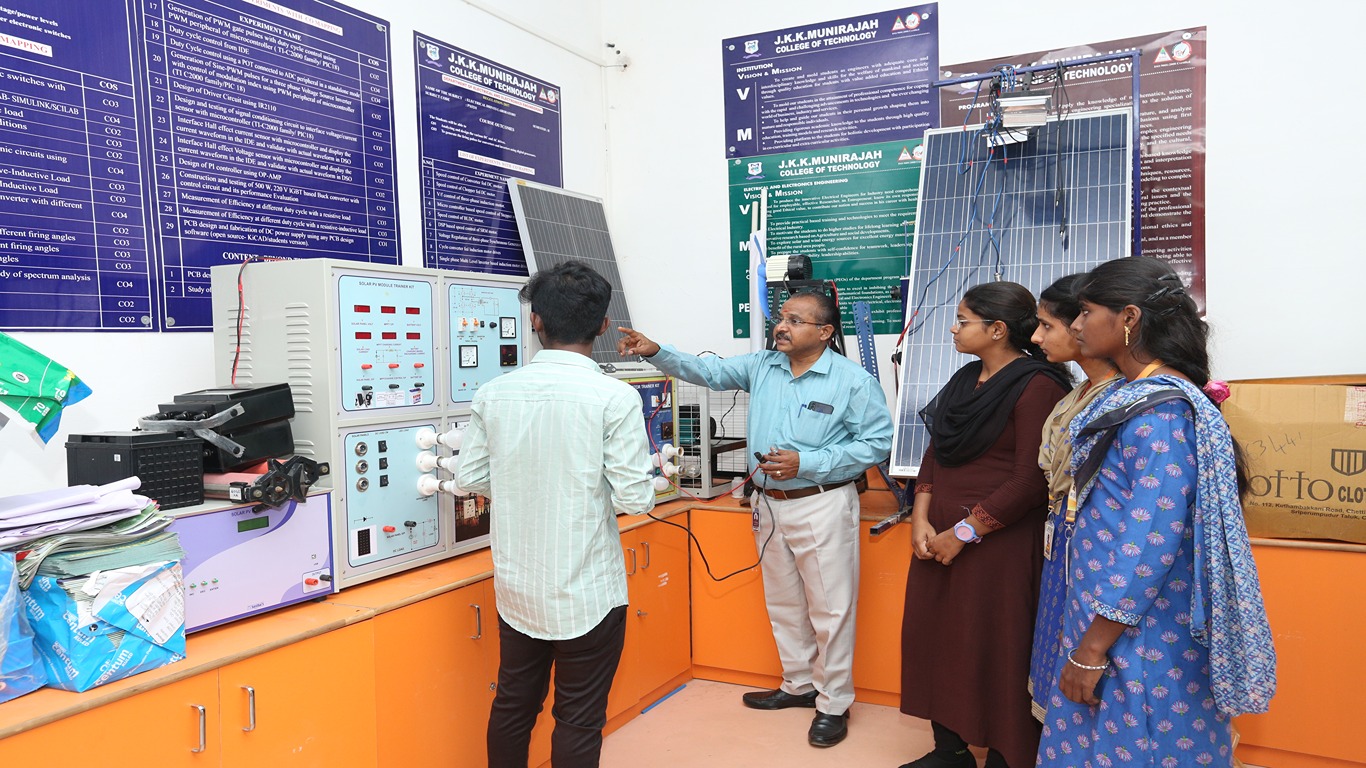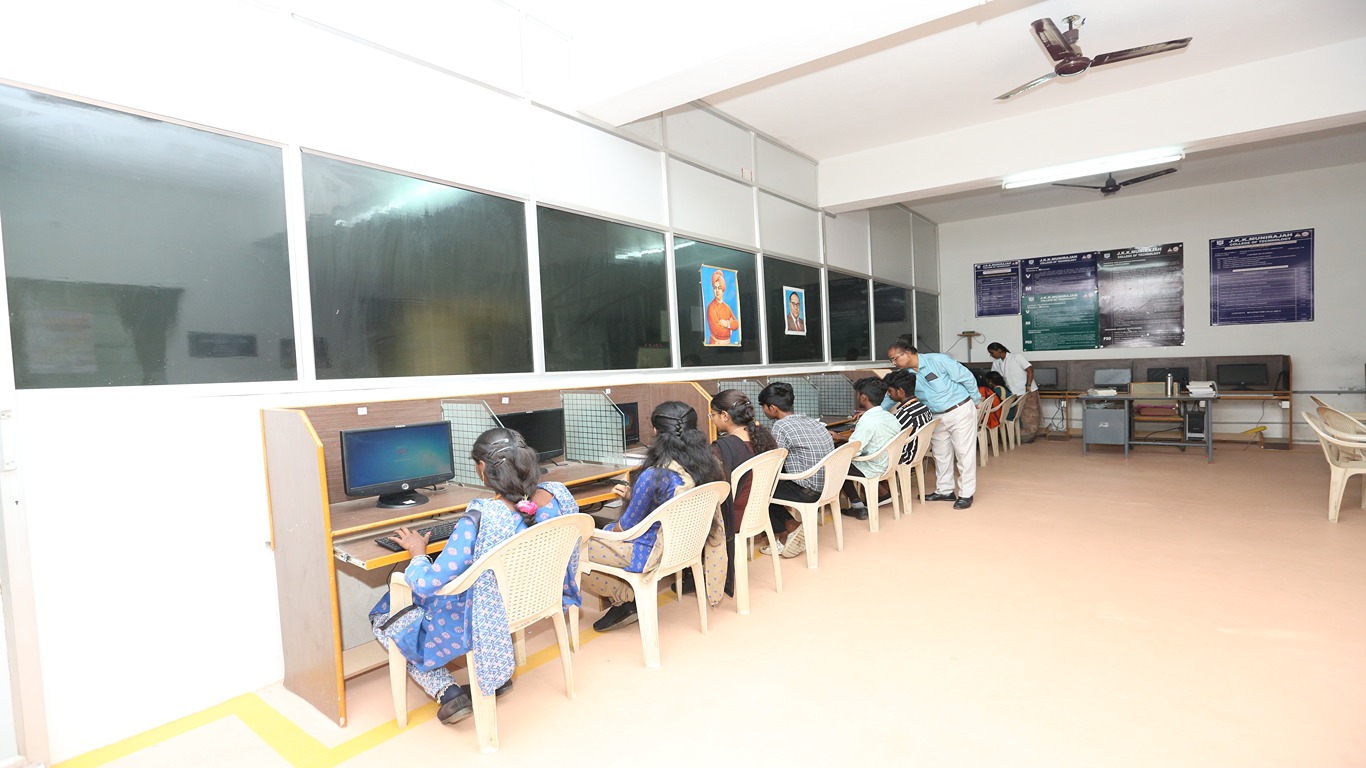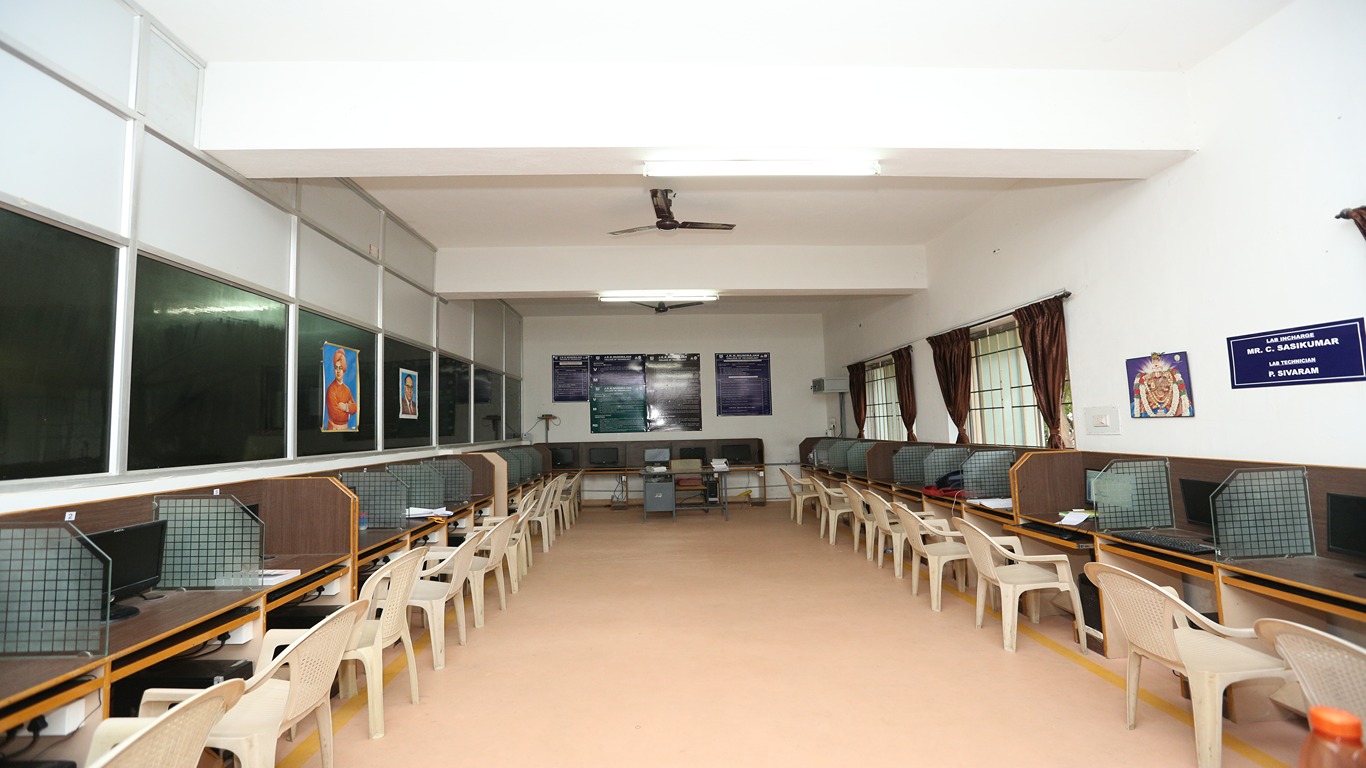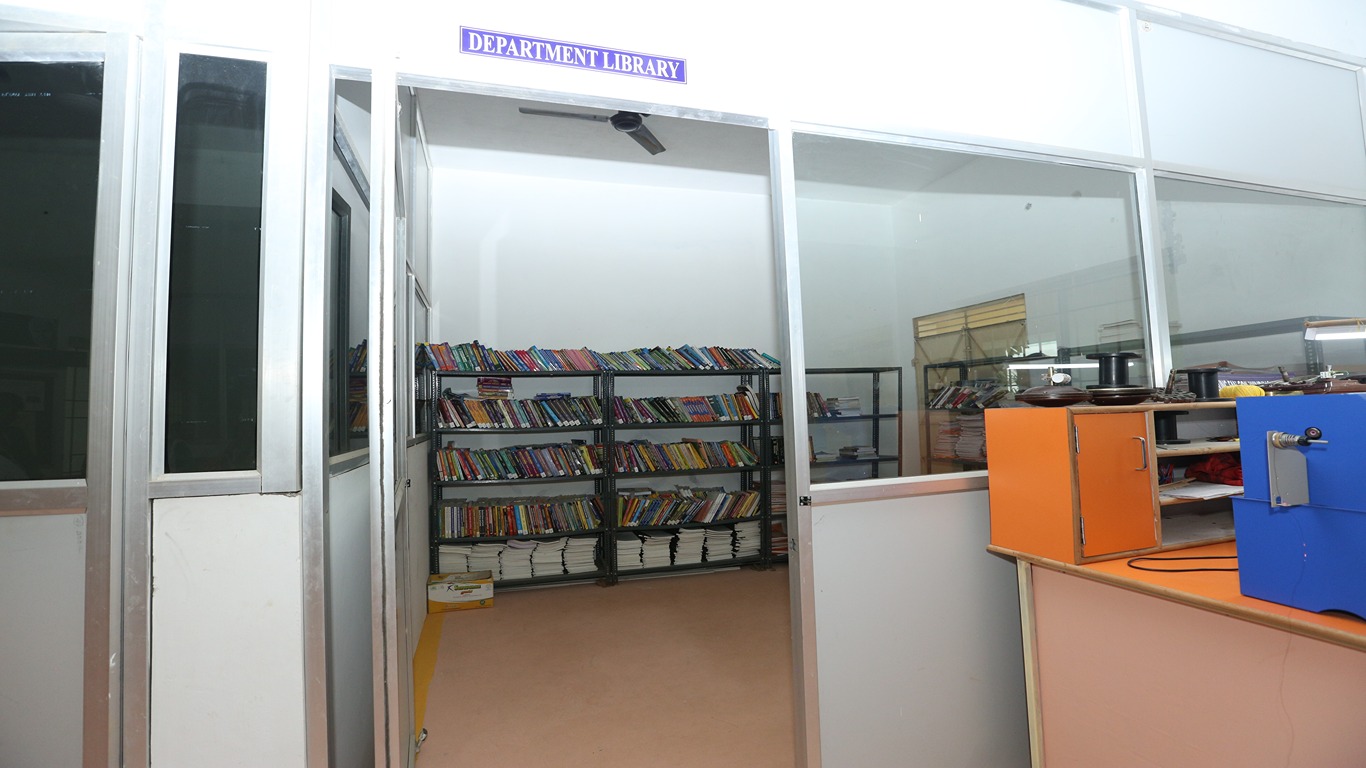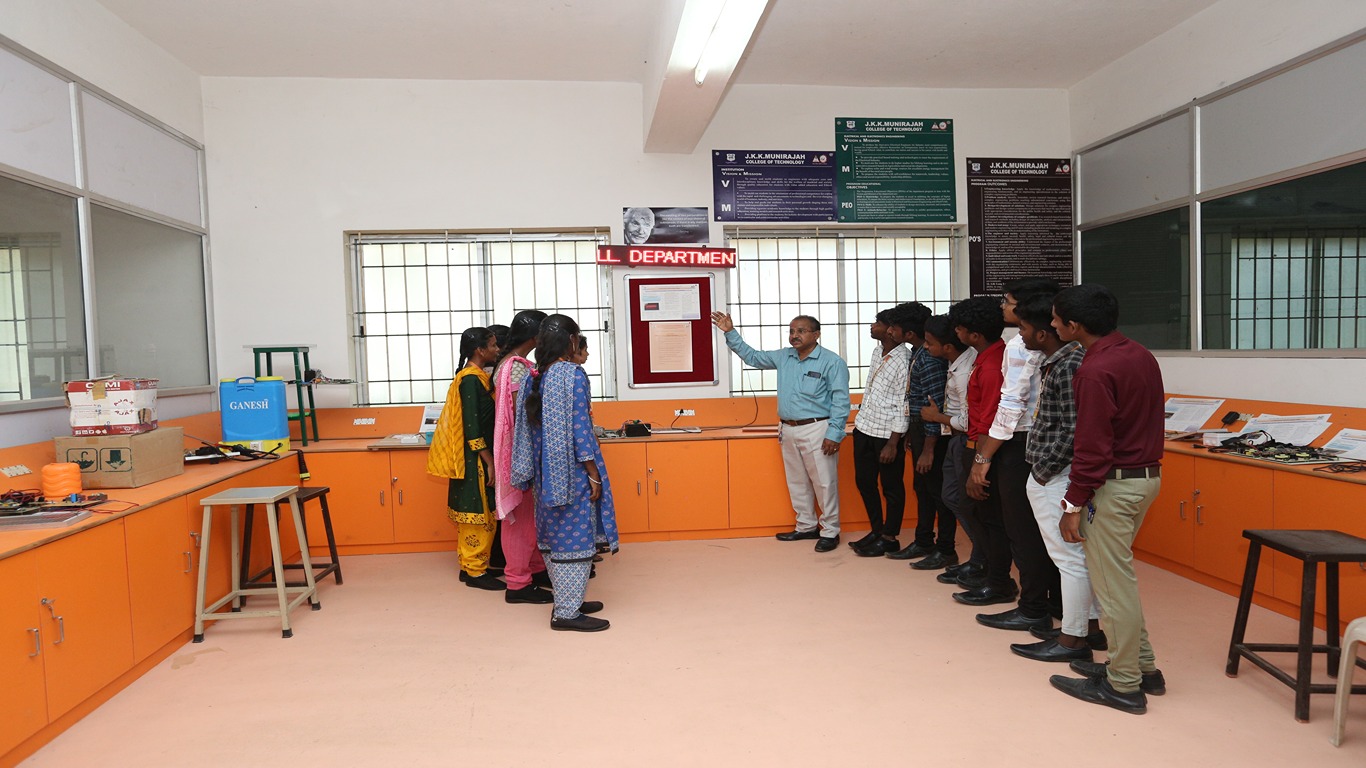Electrical and Electronics Engineering
What is Electrical and Electronic Engineering?
Electronics engineers analyze the requirements and costs of electrical systems. Electrical engineers design, develop, test, and supervise the manufacture of electrical equipment, such as electric motors, radar and navigation systems, communications systems, or power generation equipment.
Why should I study Electrical and Electronic Engineering?
Electrical engineering is the main factor in the development and advancement of technology. An electric engineer has the potential to handle things from scratch, including designing and manufacturing. Job prospects associated with electrical engineering are extensive because today's world is run on electrical energy.
Current Year Intake:
UG: Electrical and Electronics Engineering: 60 Seats
PG: Power Electronics and Drives: 9 Seats
Vision
To produce professionally competent electrical and electronics engineers to meet out the global needs in inter/multi-disciplinary domains.
Mission
To offer quality graduate and postgraduate programs in Electrical and Electronics Engineering to prepare the students for a professional career or higher studies.
To promote excellence in teaching, research and contribution to society.
PROGRAMME EDUCATIONAL OBJECTIVES (PEOs):
- Able to adapt the emerging information and communication technologies (ICT) to innovate ideas and find solutions to existingreal time problems.
- An ability to design and imlement complex systems in areas related to analog and digital electronics,communication,signal processing,VLSI and Embedded systems.
PROGRAMME SPECIFIC OUTCOMES (PSOs):
- Graduate shall be professionals with expertise in the fields of communication engineering, networking, embedded system and sensor, wireless networks and shall undertake hardware and software development, Research and teaching.
- Graduate will analyse application problems, design hardware and develop operating systems with sound core knowledge.
- Graduates shall have professional ethics, Team Spirit, lifelong learning, good oral and written and communication skills and adopt corporate culture, core values and leadership skills.
PROGRAM OUTCOMES (POs):
- Engineering Knowledge: Apply the knowledge of mathematics, science, engineering fundamentals, and an engineering specialization to the solution of complex engineering problems.
- Problem Analysis: Identify, formulate, review research literature, and analyze complex engineering problems reaching substantiated conclusions using first principles of mathematics, natural sciences, and engineering sciences.
- Design / Development of Solutions: Design solutions for complex engineering problems and design system components or processes that meet the specified needs with appropriate consideration for the public health and safety, and the cultural, societal, and environmental considerations.
- Conduct Investigations of Complex Problems: Use research-based knowledge and research methods including design of experiments, analysis and interpretation of data, and synthesis of the information to provide valid conclusions.
- Modern Tool Usage: Create, select, and apply appropriate techniques, resources, and modern engineering and IT tools including prediction and modeling to complex engineering activities with an understanding of the limitations.
- The Engineer and Society: Apply reasoning informed by the contextual knowledge to assess societal, health, safety, legal and cultural issues and the consequent responsibilities relevant to the professional engineering practice.
- Environment and Sustainability: Understand the impact of the professional engineering solutions in societal and environmental contexts, and demonstrate the knowledge of, and need for sustainable development.
- Ethics: Apply ethical principles and commit to professional ethics and responsibilities and norms of the engineering practice.
- Individual and Team Work: Function effectively as an individual, and as a member or leader in diverse teams, and in multidisciplinary settings.
- Communication: Communicate effectively on complex engineering activities with the engineering community and with society at large, such as, being able to comprehend and write effective reports and design documentation, make effective presentations, and give and receive clear instructions.
- Project Management and Finance: Demonstrate knowledge and understanding of the engineering and management principles and apply these to one’s own work, as a member and leader in a team, to manage projects and in multidisciplinary environments.
- Life-Long Learning: Recognize the need for, and have the preparation and ability to engage in independent and lifelong learning in the broadest context of technological change.
|
S.No |
Faculty Name |
Faculty Achievements |
Paper Title |
|---|---|---|---|
|
1 |
Dr.C.Saravanan |
Paper Published |
Optimization Technique for Renewable Energy Storage Systems for Power Quality Analysis with Connected Grid |
|
2 |
|
|
|
|
3 |
|
|
|
|
4 |
|
|
|
|
S.No. |
Faculty Name |
Qualification & Dept. |
Designation |
Experience |
More Details |
|
1 |
Dr.SARAVANAN C |
M.E., Ph.D., MISTE |
HEAD OF THE DEPARTMENT |
19 Years |
Click here
|
|
2 |
Mr.THAMBIRAN T S |
M.E., / EEE |
ASSISTANT PROFESSOR |
11 Years |
Click here |
|
3 |
Mr.VIGNESHKUMAR A |
M.E., / EEE |
ASSISTANT PROFESSOR |
11 Years |
Click here |
|
4 |
Mr.PRANESH S M |
M.E. (Ph.D.,) / EEE |
ASSISTANT PROFESSOR |
9 Years |
Click here
|
|
5 |
Mr.SASIKUMAR C |
M.E., / EEE |
ASSISTANT PROFESSOR |
8 Years |
Click here |
|
6 |
Mr.RAMACHANDRAN G |
M.E., / EEE |
ASSISTANT PROFESSOR |
8 Year |
Click here |
|
7 |
Mr.SATHEESH KUMAR S |
M.E., / EEE |
ASSISTANT PROFESSOR |
5 Years |
Click here |
|
8 |
Mr.PALANISAMY G |
M.E., / EEE |
ASSISTANT PROFESSOR |
5 Years |
Click here |
|
9 |
Mr.UMESH S |
M.E., / EEE |
ASSISTANT PROFESSOR |
5 Year |
Click here |
|
10 |
Mrs.DHIVYA R |
M.E., / EEE |
ASSISTANT PROFESSOR |
2 Years |
Click here |
